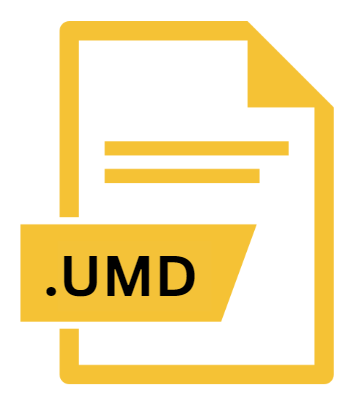.UMD File Extension

Splinter Cell Blacklist Game Data File
| Developer | Ubisoft |
| Popularity | |
| Category | Game Files |
| Format | .UMD |
| Cross Platform | Update Soon |
What is an UMD file?
‘.UMD’ stands for Ubisoft Montreal Data, denoting files used primarily by Ubisoft Montreal in their games, notably Splinter Cell: Blacklist.
These files are crucial for storing various types of game data, including textures, models, animations, and other essential assets required for gameplay and rendering.
More Information.
Initially conceived as a proprietary format for Ubisoft’s internal use, ‘.UMD files’ aimed to streamline the storage and retrieval of game assets.
By consolidating various data types into a single file format, developers could optimize loading times and enhance the overall performance of the game.
This approach not only facilitated efficient game development but also contributed to smoother gameplay experiences for users.
Origin Of This File.
The ‘.UMD file format’ was specifically developed by Ubisoft Montreal for Splinter Cell: Blacklist, which was released in 2013.
This tactical action-adventure game required robust file management to handle complex graphics and gameplay mechanics seamlessly.
The evolution of ‘.UMD files’ parallels advancements in gaming technology, adapting to support higher resolutions, more intricate textures, and enhanced gameplay features over the years.
File Structure Technical Specification.
.UMD files adhere to a structured format designed to accommodate diverse types of data:
- Header Information: Contains metadata such as file size, version, and compression details.
- Data Segments: Divided sections for textures, models, animations, audio, and other game assets.
- Compression: Utilizes compression algorithms to minimize file size without compromising data integrity.
- Encryption: Some ‘.UMD files’ may employ encryption techniques to protect proprietary information and prevent unauthorized access.
Technical specifications vary based on the specific requirements of the game engine and platform compatibility, ensuring optimal performance across different gaming consoles and PC configurations.
How to Convert the File?
Converting .UMD files to other formats typically involve specialized software tools designed for game asset management or extraction. Here’s a basic approach to converting .UMD files:
- Identify Conversion Needs: Determine whether you need to extract specific assets (e.g., textures, models) or convert the entire .UMD file.
- Use Extraction Tools: Tools like AssetStudio or Unity Studio can extract assets from .UMD files into more accessible formats such as PNG for textures or FBX for 3D models.
- Consider Scripting: For automated batch conversion, scripting languages like Python with libraries such as UnityPy can streamline the extraction process.
- Verify Compatibility: Ensure that the converted files are compatible with the target application or game engine where you intend to use them.
Advantages And Disadvantages.
Advantages:
- Efficiency: Consolidates diverse data types into a single file, optimizing storage and access.
- Performance: Enhances loading times and gameplay fluidity by minimizing data retrieval delays.
- Security: Can incorporate encryption for protecting intellectual property and sensitive game assets.
Disadvantages:
- Compatibility: Requires specific software or tools to manipulate ‘.UMD files’, limiting accessibility for modders and independent developers.
- Complexity: Handling proprietary formats may necessitate specialized knowledge or tools, potentially increasing development overhead.
How to Open UMD?
Open In Windows
- Use tools like Unity Studio or AssetStudio to extract assets from .UMD files. These tools typically run on Windows and provide a graphical interface for file extraction.
Open In Linux
- Similar to Windows, Linux users can utilize tools like Unity Studio through compatibility layers or virtual machines running Windows.
Open In MAC
- While MacOS may not directly support .UMD file extraction tools, virtualization software running Windows or Linux alongside MacOS can facilitate access using compatible extraction tools.













